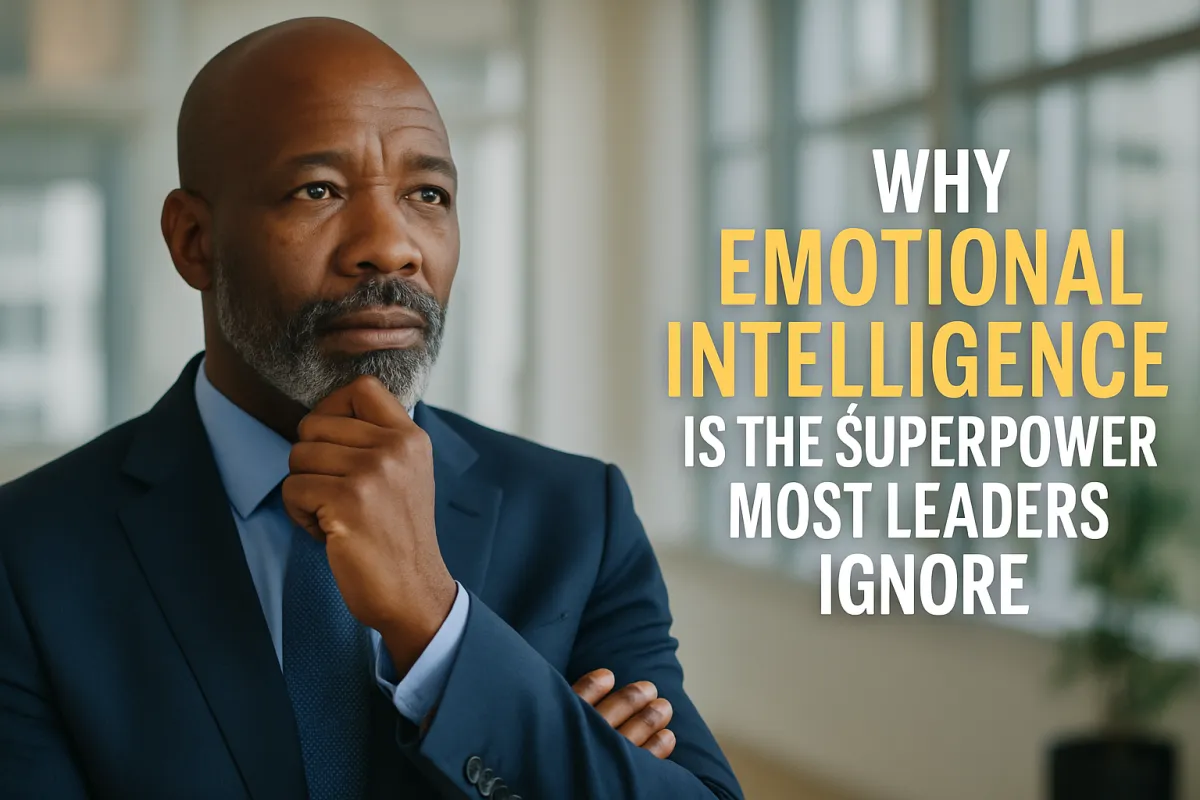
Why Emotional Intelligence Is a Leadership Superpower | Lewis Brown Griggs
In boardrooms, team meetings, and performance reviews, leadership often gets measured by results. Numbers. Deliverables. But behind every successful outcome is something harder to quantify—emotional intelligence (EQ). And while it's the most underrated leadership skill, it’s the one that separates managers from transformational leaders.
What Is Emotional Intelligence (and Why Should You Care)?
Emotional intelligence is the ability to recognize, understand, and manage your own emotions—while also tuning into the emotions of others. In practice, this means:
Pausing before reacting.
Reading the room without being told.
Communicating clearly, even in tense moments.
Building trust that sticks—because people feel seen.
In short, emotional intelligence is what makes you someone others want to follow, not just someone they report to.
The Real-World Cost of Low EQ
Think of the last team conflict that spiraled. Or the talented employee who left unexpectedly. Or the deal that slipped through your fingers. Chances are, EQ—or the lack of it—played a bigger role than we care to admit.
Low emotional intelligence leads to:
Miscommunication
Unspoken tension
Poor team morale
Increased turnover
Stalled innovation
And let’s be honest: it often starts at the top.
How Leaders With High EQ Change the Game
Leaders who prioritize emotional intelligence foster cultures where:
Feedback isn’t feared—it’s welcomed.
Mistakes become learning moments.
Diverse perspectives are honored, not silenced.
Performance improves because people feel psychologically safe.
These aren’t soft skills—they’re core competencies for any modern workplace.
Developing EQ: It’s Not About Being “Nice”
Too often, EQ is confused with being agreeable. But it’s not about avoiding hard conversations—it’s about how you show up in them.
It’s:
Being curious instead of defensive.
Naming emotions without blame.
Knowing when your own emotions are clouding your judgment.
Start With Yourself
EQ development isn’t about fixing others. It starts with a mirror. Here are three powerful starting points:
Practice daily reflection. Ask: What did I feel today, and how did I respond?
Invite honest feedback. And receive it without justifying.
Pause in conflict. Breathe. Then respond with intention.
Leadership isn’t just what you do. It’s how you make others feel in the process.
Ready to Lead with Heart?
If you’re ready to turn emotional intelligence into your leadership edge, let’s talk.
[Book a Free Discovery Call →]

